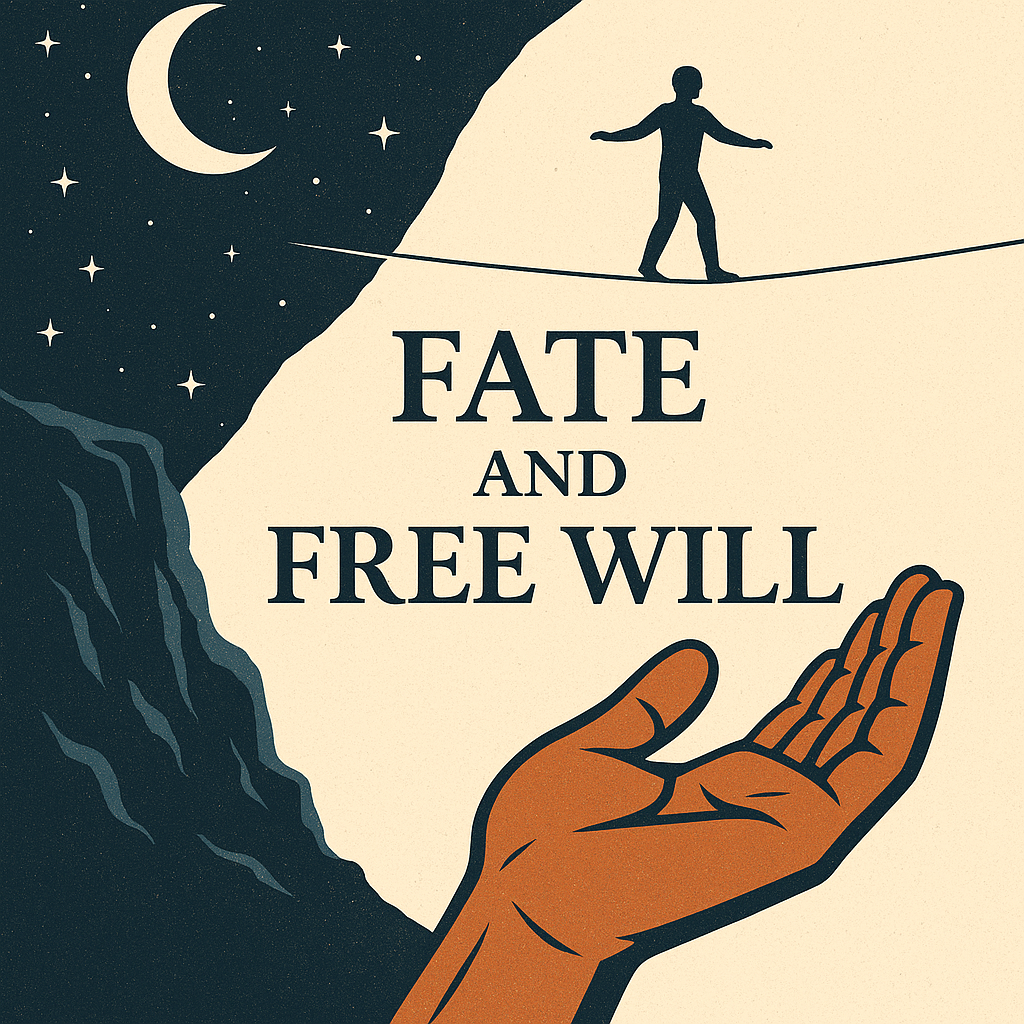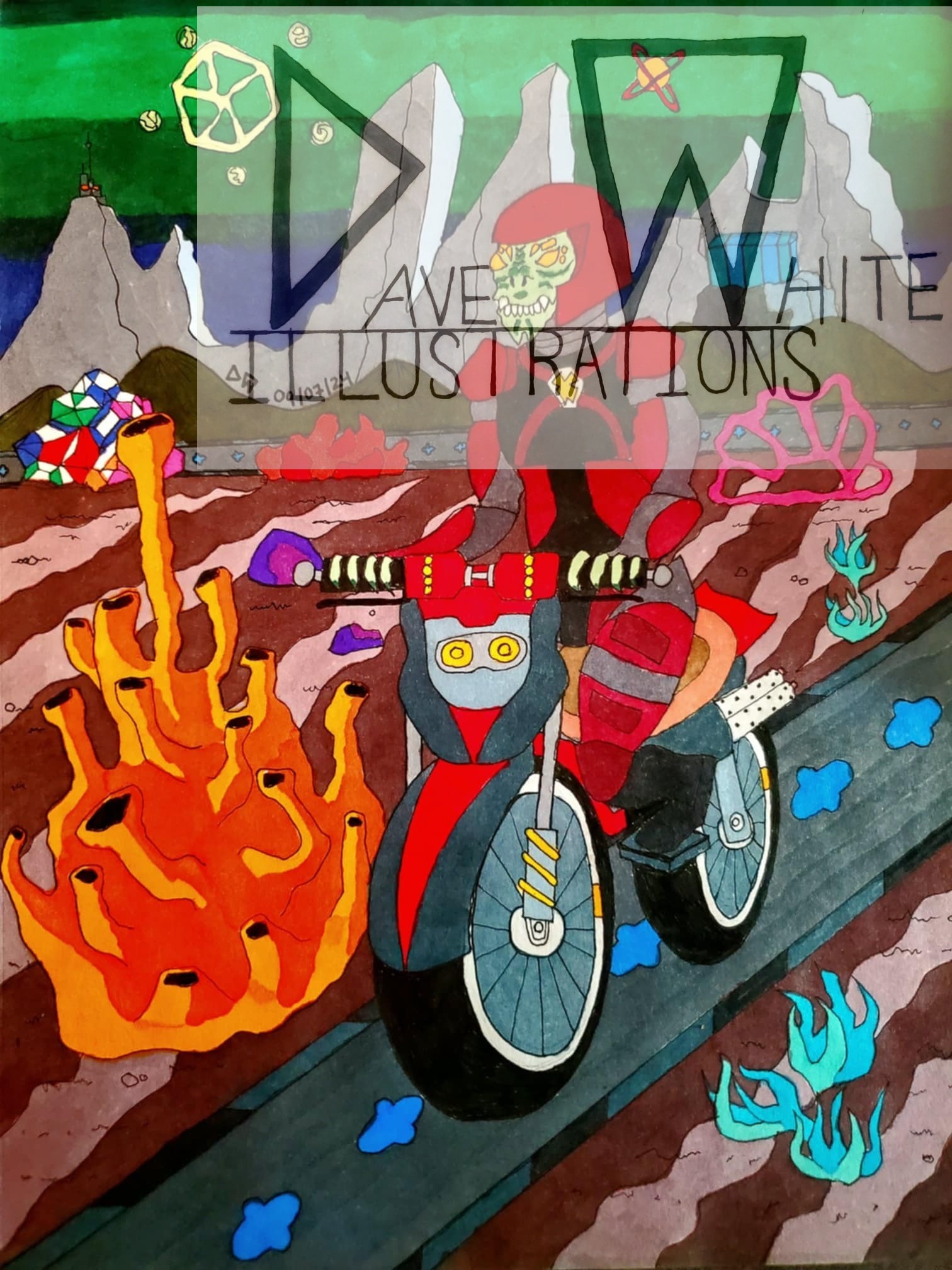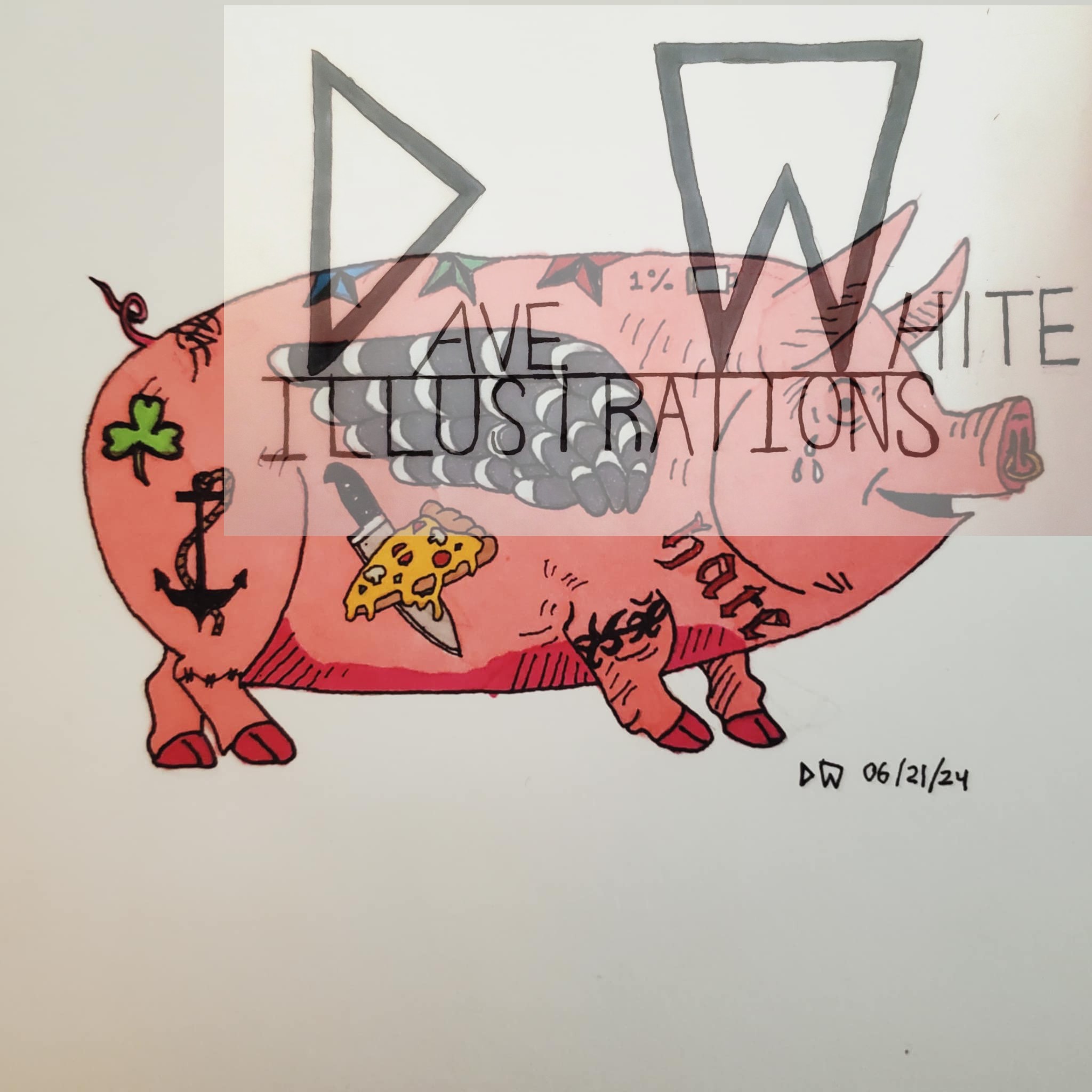The Eternal Question
For as long as humans have looked at the night sky, we’ve wondered: Do the stars govern our lives, or do we govern them ourselves? This tension between fate and free will is as old as philosophy itself.
On one side, there is the radical freedom of existentialists like Jean-Paul Sartre. “We are our choices,” he insisted, rejecting the idea that fate, society, or biology could excuse our actions. To Sartre, we are condemned to freedom—condemned, because freedom is terrifying. If everything depends on us, there is no one else to blame.
On the other side stands faith in destiny: the conviction that our lives are guided by divine hands. The Bible tells us, “Before I formed you in the womb, I knew you” (Jeremiah 1:5). This suggests that God’s omniscience extends beyond our comprehension, shaping a plan for each life before it even begins.
Both sides present something compelling—and something troubling. If everything is free will, are we adrift in chaos? If everything is destiny, are we puppets without strings?
The Tightrope Between
I believe the truth lies in tension, not absolutes. Life is a tightrope stretched between two cliffs: one marked fate, the other free will. We wobble, we balance, we sometimes fall, but our path is walked in the fragile space between.
Destiny, to me, is not a script but a framework. God may know the ending, but the middle chapters are ours to write. Fate provides the outline, free will fills in the color.
Think of it as a painting: the canvas is stretched by God, the background is already primed, but the brush is in our hand. Each stroke—each decision—creates texture, shape, and meaning. Even if God sees the finished picture, we are still the ones painting.
The Weight of Responsibility
This balance does not give us permission to shrug off accountability. Too often we are tempted to say, “It was meant to be,” when what we mean is, “I do not want to face my responsibility.”
Viktor Frankl, who survived Auschwitz, reminds us: “When we are no longer able to change a situation, we are challenged to change ourselves.” (Man’s Search for Meaning, 1946). His words embody the truth that circumstance may shape us, but choice defines us.
Biology influences us, but it does not dictate our morality. Society pressures us, but it does not decide our souls. Even grief, trauma, or mental illness—though they mark us deeply—do not erase the possibility of choice. Responsibility is what makes us human.
Stories of Paradox
History and literature echo this paradox:
Oedipus could not escape his fate, yet every choice he made was his own.
Job lost everything to what appeared as divine destiny, yet his free will was revealed in how he responded to suffering.
Abraham Lincoln, burdened by depression, still chose resilience and leadership, proving that fate’s weight can be carried by deliberate action.
These stories remind us that we live in paradox: destiny may set the boundaries, but freedom dances within them.
Faith and the Poetic Bipolar Mind
At Poetic Bipolar Mind, this question is not abstract—it is lived.
Mental Health as Destiny: Living with bipolar disorder or grief can sometimes feel like fate, as if your life were written in permanent ink. The diagnosis, the trauma, the loss—these are givens you did not choose.
Choice as Defiance: But healing lies in the small acts of choice: the decision to write instead of wither, to speak instead of hide, to create instead of collapse. Each post, each poem, each illustration here is a declaration of free will against despair.
Faith as Framework: And still, there is faith—that all these acts of resistance belong to something larger. That the words and images you create will land in the hands and hearts of those who need them most. That nothing is wasted, not even pain.
PBM is, in itself, a paradox. It is a project born from suffering but shaped by choice, anchored in faith yet propelled by freedom. It is living proof that both destiny and free will coexist, interwoven like thread and needle.
Living the Balance
So perhaps the question is not fate or free will, but how do we live in the tension between them?
To me, the answer is:
Walk the tightrope.
Accept the outline, but choose the brushstrokes.
Trust God’s omniscience, but claim your responsibility.
Live as if your choices matter—because they do.
In this balance, we honor both the divine and the human. We admit that we are small, yet still powerful. We are seen, yet still responsible. We are framed by fate, yet freed by will.
And in that paradox, meaning is born.
Works Cited
Frankl, Viktor E. Man’s Search for Meaning. Beacon Press, 1946.
Sartre, Jean-Paul. Existentialism Is a Humanism. Translated by Carol Macomber, Yale University Press, 2007.
The Holy Bible. Jeremiah 1:5.





Leave a Reply